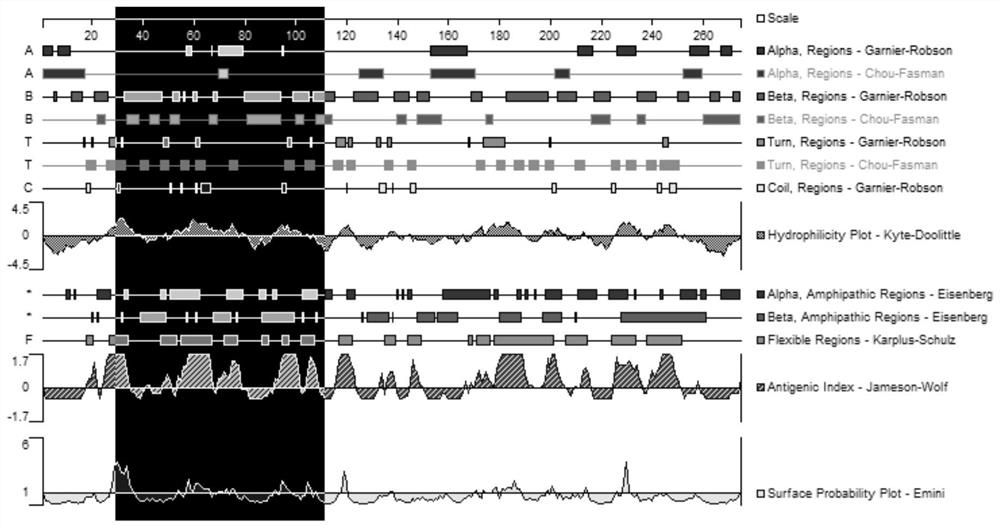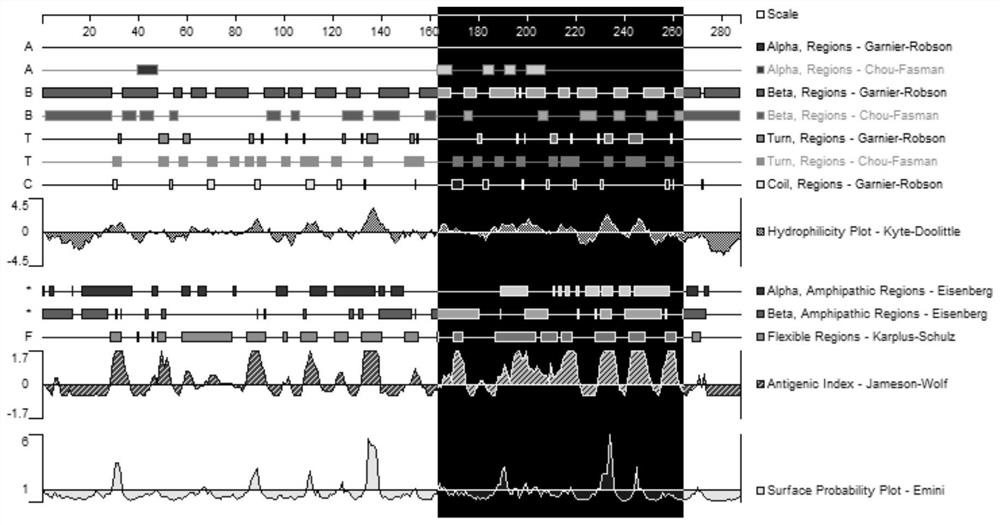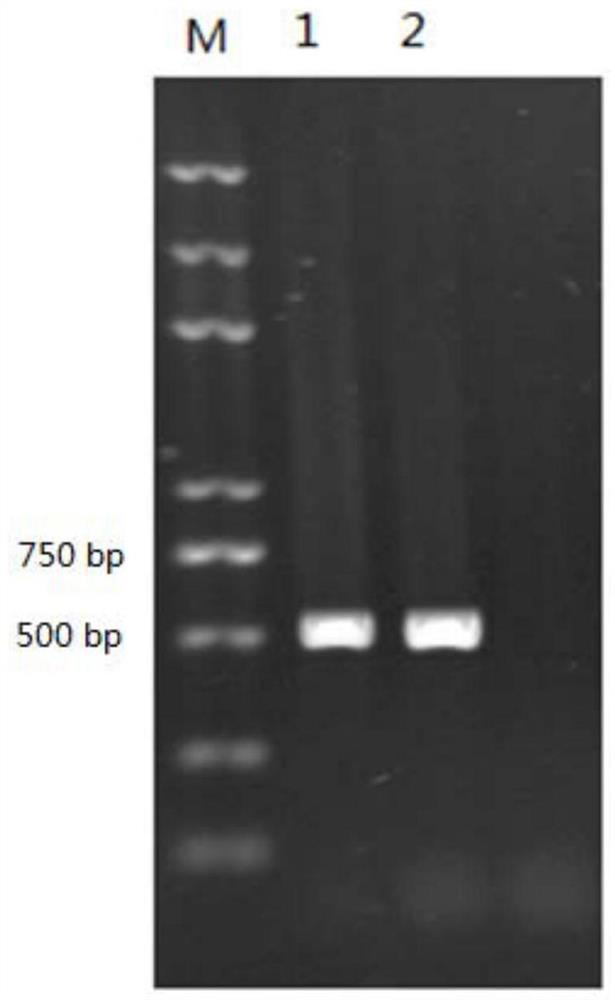A sarcocystis fusion antigen, coding gene, indirect ELISA antibody detection kit and application thereof
A technology that fuses antigens and sarcocystis, which is applied in the field of animal or human disease detection, can solve problems such as cloning, expression and application development that have not been reported in research, and achieve good application prospects, strong antigenicity and specificity.
- Summary
- Abstract
- Description
- Claims
- Application Information
AI Technical Summary
Problems solved by technology
Method used
Image
Examples
Embodiment 1
[0040] In the present embodiment, the fusion antigen of Sarcocystis is composed of the following three parts:
[0041] 1) Peptide 1 derived from the surface antigen SAG3 of Sarcocystis militaris;
[0042] 2) Peptide 2 derived from the surface antigen SAG4 of S. cruzi;
[0043] 3) A flexible peptide segment used to connect peptide segment 1 and peptide segment 2;
[0044] The amino acid sequence of the surface antigen SAG3 of S. mieni is shown in SEQ ID NO.10;
[0045] The amino acid sequence of the surface antigen SAG4 of S. cruzi is shown in SEQ ID NO.11;
[0046] The amino acid sequence of the flexible peptide is: GGGGSGGGGSGGGGS. The flexible peptide prevents the two connected protein peptides from interacting with each other when they are folded to form a high-level structure, maintaining strong antigenicity.
Embodiment 2
[0048] The amino acid sequence of the sarcocystis fusion antigen in the present embodiment is:
[0049]
[0050] (as shown in SEQ ID NO.4).
[0051] In this sequence, the part in italics is the partial amino acid sequence of S. cruzi SAG3 (peptide segment 37-118 in the sequence SEQ ID NO.10), the underlined part is the flexible peptide, and the bold part is S. cruzi SAG4 Partial amino acid sequence (peptide segment 165-264 in sequence SEQ ID NO.11).
Embodiment 3
[0053] The nucleotide sequence of the gene encoding the sarcocystis fusion antigen (shown in SEQ ID NO.4) in this example is shown in SEQ ID NO.5. The sequence is obtained by referring to the codon usage frequency table of Escherichia coli and using codon optimization tools. The coding region of the fusion antigen is 597 bp, and the coding region of the bivalent fusion antigen SAG3-4 is artificially synthesized by a biological company.
PUM
 Login to View More
Login to View More Abstract
Description
Claims
Application Information
 Login to View More
Login to View More - R&D
- Intellectual Property
- Life Sciences
- Materials
- Tech Scout
- Unparalleled Data Quality
- Higher Quality Content
- 60% Fewer Hallucinations
Browse by: Latest US Patents, China's latest patents, Technical Efficacy Thesaurus, Application Domain, Technology Topic, Popular Technical Reports.
© 2025 PatSnap. All rights reserved.Legal|Privacy policy|Modern Slavery Act Transparency Statement|Sitemap|About US| Contact US: help@patsnap.com



